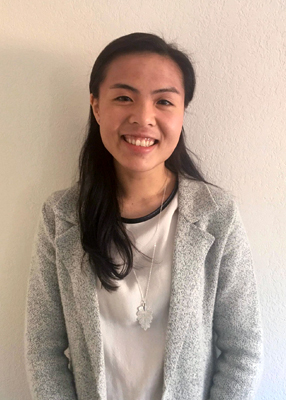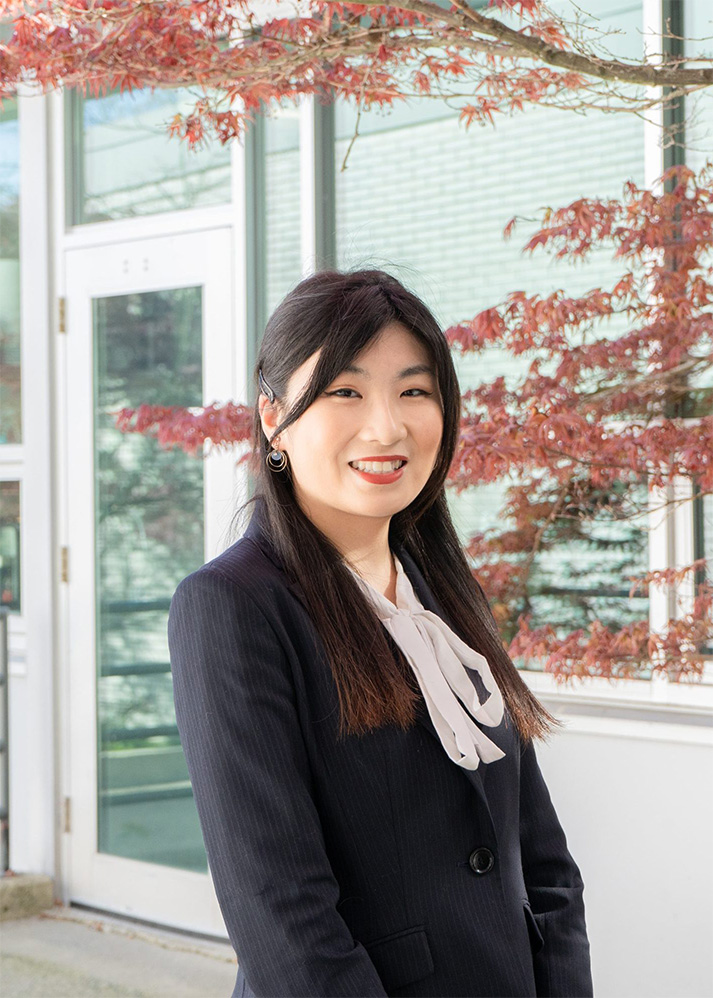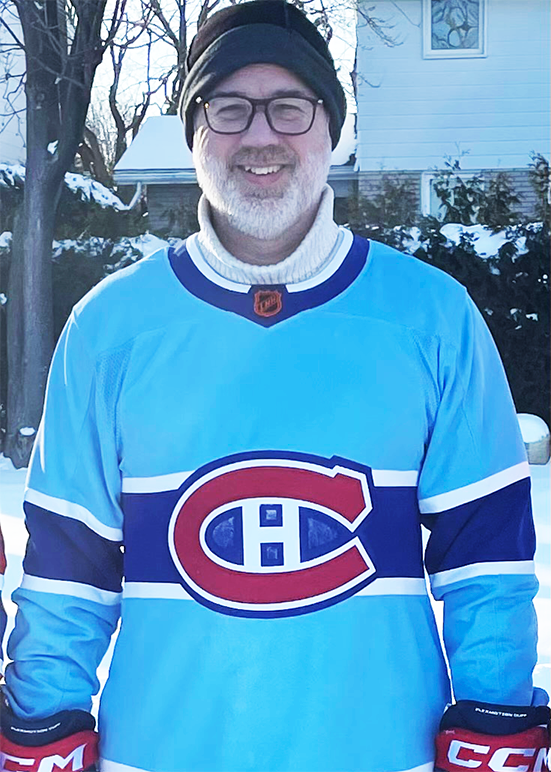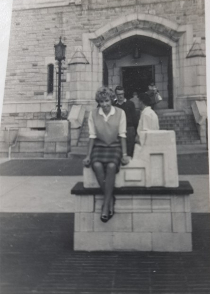Alison Fung

Why did you choose your program at UBC and what did you enjoy most about it?
After taking my first geography course in my first term, I loved it and realized I wanted to do something focused on the environment. The Environment and Sustainability Program in the geography department combined both the science and human aspects of environmental problems, which are very interconnected. It helped me learn to analyze complex issues and brainstorm solutions, and gave me a general base of knowledge of environmental issues today.
What were some of your most meaningful experiences at UBC?
I remember leaving my favourite classes so inspired by some professors, thinking about complex environmental issues I never even knew about. After going to high school in a small town, it was great to go to a large university that is so diverse, with plenty of opportunities. I made friends for life, including friends that have similar interests and career paths to me. Some of my favourite experiences were wandering around with friends or alone to explore the beautiful campus—the leaves in the fall, Nitobe garden, the botanical garden, etc.
What choices did you make at UBC that contributed to your career success / journey?
Joining the Arts Co-op program 100% contributed to my career success. Those three co-op terms were so valuable in learning what work I wanted to do, developing my work skills, and being able to get the jobs I was interested in after graduation! Another choice that contributed to my career was becoming a Team Coordinator at Common Energy—it gave me the experience leading a team and launching a program.
What was your first job after graduation and what other jobs did you have before your current position?
My first job was at Fisheries and Oceans Canada (DFO) as a Consultation Officer, working on large projects such as the Wild Salmon Policy and the development of Marine Protected Areas. Since then, I’ve been a Regional Response Officer at DFO working on oil spill response preparedness, and had a short stint at the Canadian Coast Guard as a Task Force Coordinator/Policy Analyst. Currently, I’m an Environmental Management Analyst at the Ministry of Environment and Climate Change Strategy working on single-use plastics and municipal waste policies.
Is your current career path as you originally intended? What challenges did you face in launching your career?
After university, I knew I wanted to do something environmentally focused. My first position was in Indigenous consultation on environmental issues, and I realized from that job that I wanted to work directly on environmental policies, rather than consulting on policies. Three years later, I was able to get a job doing exactly that!
Challenges I faced included taking jobs based on job availability, and competing against candidates that had 10+ years of experience more than me. But eventually I managed to be successful in a job competition that I was really interested in, so it all worked out! From being on a hiring panel myself, I also learned it is not all about years of experience.
What do you like about your current job and what do you find challenging? How does it relate to your degree?
I love that in my current job as an Environmental Management Analyst (which really just means Policy Analyst), I’m able to see how my work is enacting change. In my work to ban single-use plastics through regulatory and policy measures, the research and analysis that I’m doing is helping create new provincial and municipal policies. I also started a Green Team in our building, and my manager was very supportive of allowing me to do this work.
Being in government, making new policies can take time, and seeing timelines pushed back can be frustrating, but I find it very worth it. In my experience, I’m able to create the most substantive environmental change by working on government policies/regulations.
My job relates to my degree as I am doing research and analysis on environmental issues, and looking for recommendations and solutions to bring forward.
From your experience, what has been the value of having an Arts degree?
While many people in my position have science degrees and master’s degrees, the environmental policy I’m helping develop does not require it. In my experience, job experience is much more important than the type of degree you have.
I like that with my geography Arts degree I was able to focus more on the human aspects to environmental issues, which is a big focus in my work. Learning to write clearly and concisely is probably the biggest asset I developed during my degree that has benefited my work.
Are there any other achievements or activities you would like to highlight?
After starting a Green Team at work, I was able to make tangible changes to cut down waste in my building by working with building services and the waste contractor. I received the 2020 SAIL (Sustainability, Action, Innovation and Leadership) Award from the Ministry of Citizen Services, which led to funding for our Green Team! Starting a Green Team has also helped me meet lots of people at work and form relationships.
I was also in Toastmasters at work for a year, which I found very valuable in becoming more comfortable with public speaking. It definitely helped me and I’d recommend it to anyone who wants to practice and gain confidence with public speaking.
What advice would you give to students and alumni interested in breaking into your industry?
For any job, a can-do positive attitude goes a long way and is very attractive to a hiring manager. Be eager to learn, willing to help others and have coffee (or virtual coffee) with groups that you are interested in working for. Before I landed my first co-op term, I was a volunteer at an environmental non-profit and I think that really helped me get the job by having a relevant volunteer position.
What advice would you give to your first-year self?
Take different courses, join different groups and find volunteer opportunities to figure out where your interests lie and what type of work you’d find rewarding.
Alison Fung



Why did you choose your program at UBC and what did you enjoy most about it?
After taking my first geography course in my first term, I loved it and realized I wanted to do something focused on the environment. The Environment and Sustainability Program in the geography department combined both the science and human aspects of environmental problems, which are very interconnected. It helped me learn to analyze complex issues and brainstorm solutions, and gave me a general base of knowledge of environmental issues today.
What were some of your most meaningful experiences at UBC?
I remember leaving my favourite classes so inspired by some professors, thinking about complex environmental issues I never even knew about. After going to high school in a small town, it was great to go to a large university that is so diverse, with plenty of opportunities. I made friends for life, including friends that have similar interests and career paths to me. Some of my favourite experiences were wandering around with friends or alone to explore the beautiful campus—the leaves in the fall, Nitobe garden, the botanical garden, etc.
What choices did you make at UBC that contributed to your career success / journey?
Joining the Arts Co-op program 100% contributed to my career success. Those three co-op terms were so valuable in learning what work I wanted to do, developing my work skills, and being able to get the jobs I was interested in after graduation! Another choice that contributed to my career was becoming a Team Coordinator at Common Energy—it gave me the experience leading a team and launching a program.
What was your first job after graduation and what other jobs did you have before your current position?
My first job was at Fisheries and Oceans Canada (DFO) as a Consultation Officer, working on large projects such as the Wild Salmon Policy and the development of Marine Protected Areas. Since then, I’ve been a Regional Response Officer at DFO working on oil spill response preparedness, and had a short stint at the Canadian Coast Guard as a Task Force Coordinator/Policy Analyst. Currently, I’m an Environmental Management Analyst at the Ministry of Environment and Climate Change Strategy working on single-use plastics and municipal waste policies.
Is your current career path as you originally intended? What challenges did you face in launching your career?
After university, I knew I wanted to do something environmentally focused. My first position was in Indigenous consultation on environmental issues, and I realized from that job that I wanted to work directly on environmental policies, rather than consulting on policies. Three years later, I was able to get a job doing exactly that!
Challenges I faced included taking jobs based on job availability, and competing against candidates that had 10+ years of experience more than me. But eventually I managed to be successful in a job competition that I was really interested in, so it all worked out! From being on a hiring panel myself, I also learned it is not all about years of experience.
What do you like about your current job and what do you find challenging? How does it relate to your degree?
I love that in my current job as an Environmental Management Analyst (which really just means Policy Analyst), I’m able to see how my work is enacting change. In my work to ban single-use plastics through regulatory and policy measures, the research and analysis that I’m doing is helping create new provincial and municipal policies. I also started a Green Team in our building, and my manager was very supportive of allowing me to do this work.
Being in government, making new policies can take time, and seeing timelines pushed back can be frustrating, but I find it very worth it. In my experience, I’m able to create the most substantive environmental change by working on government policies/regulations.
My job relates to my degree as I am doing research and analysis on environmental issues, and looking for recommendations and solutions to bring forward.
From your experience, what has been the value of having an Arts degree?
While many people in my position have science degrees and master’s degrees, the environmental policy I’m helping develop does not require it. In my experience, job experience is much more important than the type of degree you have.
I like that with my geography Arts degree I was able to focus more on the human aspects to environmental issues, which is a big focus in my work. Learning to write clearly and concisely is probably the biggest asset I developed during my degree that has benefited my work.
Are there any other achievements or activities you would like to highlight?
After starting a Green Team at work, I was able to make tangible changes to cut down waste in my building by working with building services and the waste contractor. I received the 2020 SAIL (Sustainability, Action, Innovation and Leadership) Award from the Ministry of Citizen Services, which led to funding for our Green Team! Starting a Green Team has also helped me meet lots of people at work and form relationships.
I was also in Toastmasters at work for a year, which I found very valuable in becoming more comfortable with public speaking. It definitely helped me and I’d recommend it to anyone who wants to practice and gain confidence with public speaking.
What advice would you give to students and alumni interested in breaking into your industry?
For any job, a can-do positive attitude goes a long way and is very attractive to a hiring manager. Be eager to learn, willing to help others and have coffee (or virtual coffee) with groups that you are interested in working for. Before I landed my first co-op term, I was a volunteer at an environmental non-profit and I think that really helped me get the job by having a relevant volunteer position.
What advice would you give to your first-year self?
Take different courses, join different groups and find volunteer opportunities to figure out where your interests lie and what type of work you’d find rewarding.



